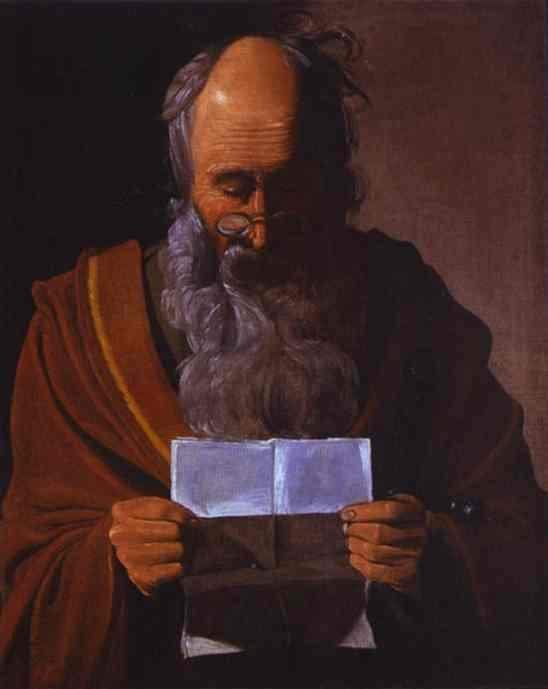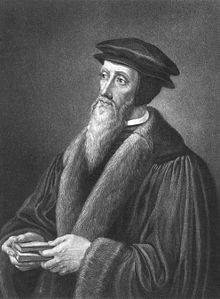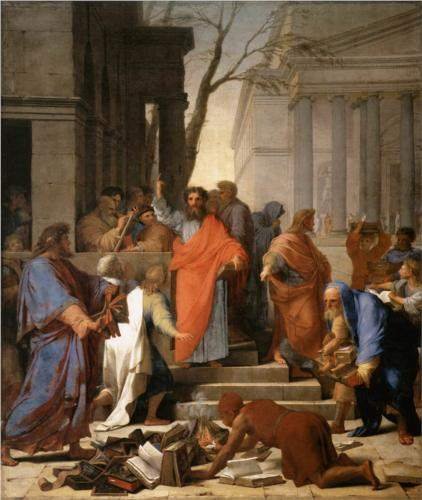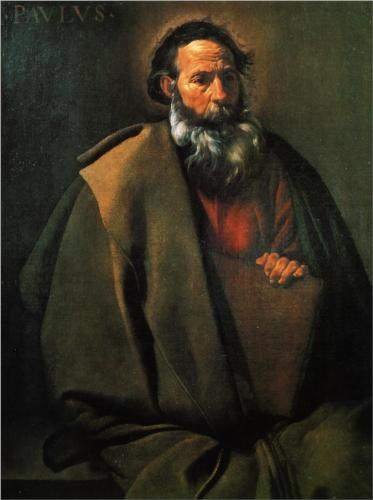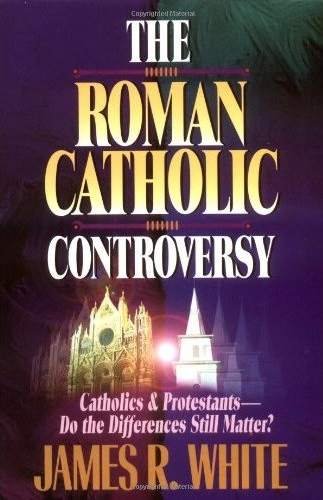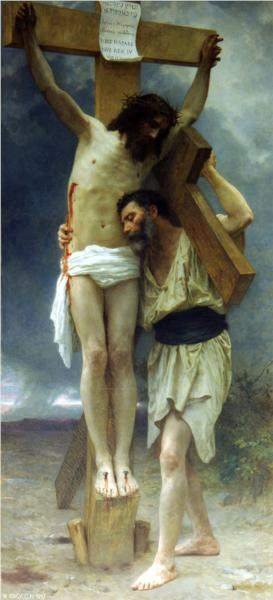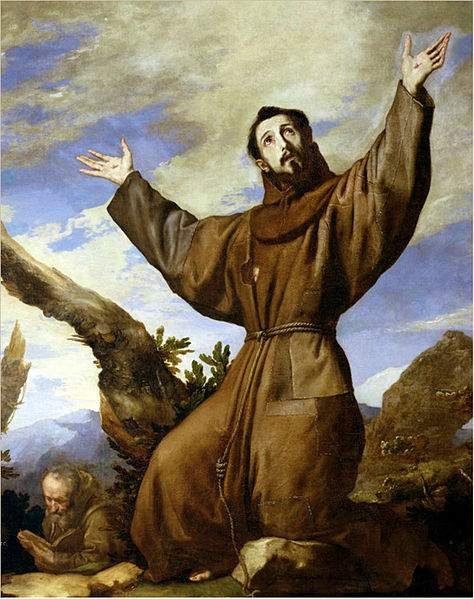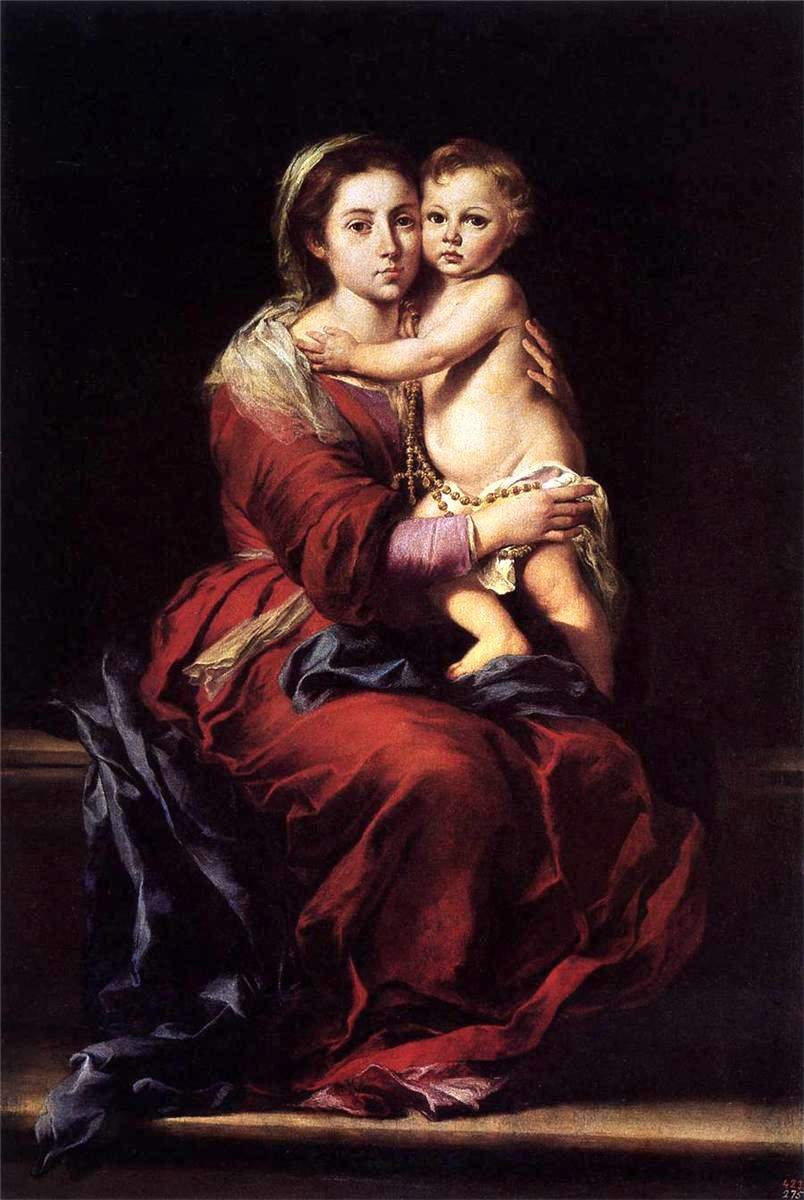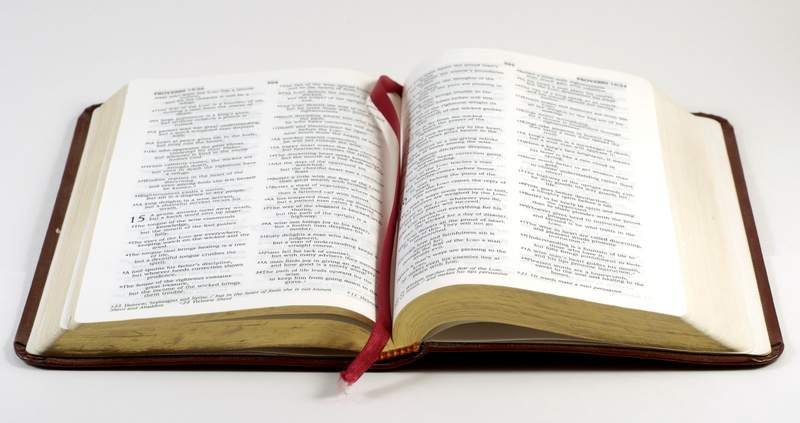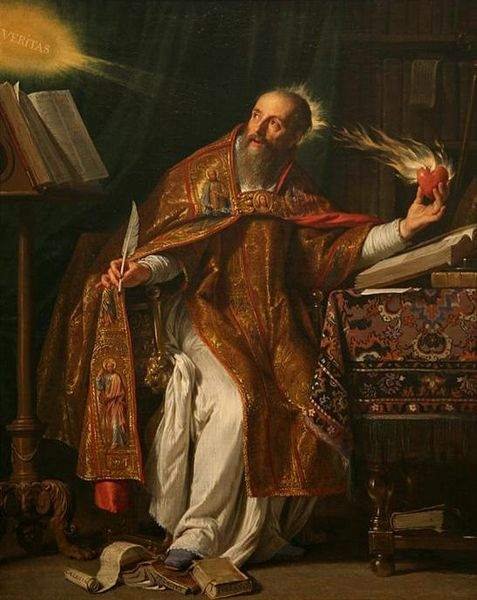
St. Augustine (c. 1645-1650), by Philippe de Champaigne.
(I was accused of heresy today. I’m sure it won’t be the last time, but since it’s the first time, I’m rather upset, and was interrupted from writing your regularly scheduled post. Rather than leave this as a lengthy comment on an innocent bystander’s blog, I thought I would post it here.)
Oh, so you want to appeal to the historic Church? I hope you are prepared to support your arguments.
First, the Pelagian heresy espoused that Adam’s original sin did not taint human nature, and that man was capable, in himself, of choosing good over evil without the grace of God. Which the Catholic Church explicitly denies, and always has. You should remember that it was the Catholic Church that branded Pelagianism a heresy in the first place and rejected it at the Council of Carthage in 419 — which affirmed that without God’s grace, it was impossible to do good works (Canon 113). The Council of Trent again affirmed in 1547:
If any one saith, that man may be justified before God by his own works, whether done through the teaching of human nature, or that of the law, without the grace of God through Jesus Christ; let him be anathema (Council of Trent, 1547: Sixth Session, Canon I “On Justification”).
So if you’ve going to charge anyone with Pelagianism, you should (1) know what Pelagius actually taught; (2) remember who it was who condemned Pelagius; and (3) understand what the party you’re charging actually teaches.
The Catholic Church in every way affirms that salvation is from God and by God; that God does the saving, by His grace alone, not man, by anything that he does or could do. Believing that God offers His grace freely, but allows man the free will to choose or reject it, is a far different proposition than claiming “man saves himself.” You are charging the Church with an opinion that it does not hold, does not assert, and has never asserted.
Second — you claim your view is that of the “historic Church” and St. Augustine. Would you agree with these statements?
[L]est the will itself should be deemed capable of doing any good thing without the grace of God, after saying, “His grace within me was not in vain, but I have laboured more abundantly than they all,” he immediately added the qualifying clause, “Yet not I, but the grace of God which was with me.” In other words, Not I alone, but the grace of God with me. And thus, neither was it the grace of God alone, nor was it he himself alone, but it was the grace of God with him. For his call, however, from heaven and his conversion by that great and most effectual call, God’s grace was alone, because his merits, though great, were yet evil. (St. Augustine, On Grace and Free Will, 5:12) (A.D. 427)
Unintelligent persons, however, with regard to the apostle’s statement: We conclude that a man is justified by faith without the works of the law (Romans 3:28), have thought him to mean that faith suffices to a man, even if he lead a bad life, and has no good works. Impossible is it that such a character should be deemed a vessel of election by the apostle, who, after declaring that in Christ Jesus neither circumcision avails anything, nor uncircumcision, Galatians 5:6 adds at once, but faith which works by love. (St. Augustine, On Grace and Free Will VI.18)
… This love the Apostle Peter did not yet possess, when he for fear thrice denied the Lord (Matthew 26:69-75). There is no fear in love, says the Evangelist John in his first Epistle, but perfect love casts out fear (1 John 4:18). But yet, however small and imperfect his love was, it was not wholly wanting when he said to the Lord, I will lay down my life for Your sake (John 13:37); for he supposed himself able to effect what he felt himself willing to do. And who was it that had begun to give him his love, however small, but He who prepares the will, and perfects by His co-operation what He initiates by His operation? Forasmuch as in beginning He works in us that we may have the will, and in perfecting works with us when we have the will. On which account the apostle says, I am confident of this very thing, that He which has begun a good work in you will perform it until the day of Jesus Christ (Philippians 1:6). He operates, therefore, without us, in order that we may will; but when we will, and so will that we may act, He co-operates with us. We can, however, ourselves do nothing to effect good works of piety without Him either working that we may will, or co-working when we will. Now, concerning His working that we may will, it is said: It is God which works in you, even to will (Philippians 2:13). (St. Augustine, On Grace and Free Will XVII.33)
Indeed we also work, but we are only collaborating with God who works, for his mercy has gone before us. It has gone before us so that we may be healed, and follows us so that once healed, we may be given life; it goes before us so that we may be called, and follows us so that we may be glorified; it goes before us so that we may live devoutly, and follows us so that we may always live with God: for without him we can do nothing. (St. Augustine, On Nature and Grace 31)
But God made you without you. You didn’t, after all, give any consent to God making you. How were you to consent, if you didn’t yet exist? So while he made you without you, he doesn’t justify you without you. So he made you without your knowing it, he justifies you with your willing consent to it. Yet it’s he that does the justifying …” (St. Augustine, Sermon 169.13) (PL 38, 923)
“No man can come to me, except the Father who hath sent me draw him”! For He does not say, “except He lead him,” so that we can thus in any way understand that his will precedes. For who is “drawn,” if he was already willing? And yet no man comes unless he is willing. Therefore he is drawn in wondrous ways to will, by Him who knows how to work within the very hearts of men. Not that men who are unwilling should believe, which cannot be, but that they should be made willing from being unwilling. (St. Augustine, Against Two Letters of the Pelagians, I:19) (A.D. 420).
As strong as we could, we urged on them, as on your and our brothers, to preserve in the catholic faith, which neither denies free will whether for a bad life or a good one, nor allows it so much effect that it can do anything without the grace of God, whether to convert the soul from evil to good, or to preserve and advance in good, or to attain eternal good, where there is no more fear of falling away. (St. Augustine, Epistle 215:4) (A.D. 423).
Augustine was writing in many of these cases against the Pelagians — who argued that they could do good works and be justified apart from God’s grace. Their argument never was that they didn’t need works to be justified — and so Augustine never argued specifically against that; all of his arguments go to the fact that God’s grace was necessary to do good works, which the Catholic Church affirms. As for the teachings of the other Church Fathers:
Seeing, therefore, that we are the portion of the Holy One, let us do all those things which pertain to holiness, avoiding all evil-speaking, all abominable and impure embraces, together with all drunkenness, seeking after change, all abominable lusts, detestable adultery, and execrable pride. “For God,” saith [the Scripture], “resisteth the proud, but giveth grace to the humble.” Let us cleave, then, to those to whom grace has been given by God. Let us clothe ourselves with concord and humility, ever exercising self-control, standing far off from all whispering and evil-speaking, being justified by our works, and not our words.” (Clement of Rome, Epistle to the Corinthians, 30) (A.D. 98).
But He who raised Him up from the dead will raise up us also, if we do His will, and walk in His commandments, and love what He loved, keeping ourselves from all unrighteousness, covetousness, love of money, evil speaking, falsewitness; “not rendering evil for evil, or railing for railing,” or blow for blow, or cursing for cursing, but being mindful of what the Lord said in His teaching: “Judge not, that ye be not judged; forgive, and it shall be forgiven unto you; be merciful, that ye may obtain mercy; with what measure ye mete, it shall be measured to you again”; and once more, “Blessed are the poor, and those that are persecuted for righteousness’ sake, for theirs is the kingdom of God.” (Polycarp, To the Philippians, 2) (A.D. 135).
All creation fears the Lord, but all creation does not keep His commandments. They only who fear the Lord and keep His commandments have life with God; but as to those who keep not His commandments, there is no life in them. (The Shepherd of Hermas, II Commandment Seventh)
We have learned from the prophets, and we hold it to be true, that punishments, and chastisements, and good rewards, are rendered according to the merit of each man’s actions. Since if it be not so, but all things happen by fate, neither is anything at all in our own power…But this we assert is inevitable fate, that they who choose the good have worthy rewards, and they who choose the opposite have their merited awards. For not like other things, as trees and quadrupeds, which cannot act by choice, did God make man: for neither would he be worthy of reward or praise did he not of himself choose the good, but were created for this end; nor, if he were evil, would he be worthy of punishment, not being evil of himself, but being able to be nothing else than what he was made. (Justin Martyr, First Apology, 6) (A.D. 155)
If men by their works show themselves worthy of this His design, they are deemed worthy, and so we have received — of reigning in company with Him, being delivered from corruption and suffering. For as in the beginning He created us when we were not, so do we consider that, in like manner, those who choose what is pleasing to Him are, on account of their choice, deemed worthy of incorruption and of fellowship with Him. For the coming into being at first was not in our own power; and in order that we may follow those things which please Him, choosing them by means of the rational faculties He has Himself endowed us with, He both persuades us and leads us to faith. (Justin Martyr, First Apology 10) (c. 150)
Whoever dies in his sins, even if he profess to believe in Christ, does not truly believe in Him, and even if that which exists without works be called faith, such faith is dead in itself, as we read in the Epistle bearing the name of James. (Origen, Commentary on John, 19:6 (A.D. 232).
All indeed depends on God, but not so that our free-will is hindered. “If then it depend on God,” (one says), “why does He blame us?” On this account I said, “so that our free-will is not hindered.” It depends then on us, and on Him. For we must first choose the good; and then He leads us to His own. He does not anticipate our choice, lest our free-will should be outraged. But when we have chosen, then great is the assistance he brings to us … For it is ours to choose and to wish; but God’s to complete and to bring to an end. Since therefore the greater part is of Him, he says all is of Him, speaking according to the custom of men. For so we ourselves also do. I mean for instance: we see a house well built, and we say the whole is the Architect’s [doing], and yet certainly it is not all his, but the workmen’s also, and the owner’s, who supplies the materials, and many others’, but nevertheless since he contributed the greatest share, we call the whole his. So then [it is] in this case also. (John Chrysostom, Homily on Hebrews, 12:3) (A.D. 403).
There is a whole lot more where this came from.
Third, regarding “Mary worship”: That’s a very ignorant thing to say. Catholics do not “worship” Mary, or the saints, or anyone but God. Regarding the Eucharist (I presume you are referring to the Real Presence): I encourage you to read the Church Fathers, every one of whom affirmed the Real Presence.
Regarding “liberal theology”: Our theology is older than yours by about 1,500 years, and has remained consistent. That’s nothing if not conservative. Regarding ecumenical efforts: Certainly there can be no reconcilation if you’re not willing to listen to what anyone else has to say. Don’t let biases and prejudices cloud your judgment.
Regarding “the majority of the Christian Church [viewing] the Catholic church as a cult [whose] followers are going to Hell”: the last time I checked, we are the majority of the Christian Church, by about two to one. And I can speak from having been a Protestant most of my life that very few Protestants think the Catholic Church is going to Hell.
Fourth, you call me “brother,” yet in the same breath call me a heretic and an “unbeliever.” That’s not very generous or charitable of you. I can see very well your view of the Catholic Church today. I propose that you should do a little studying of your own about what the Catholic Church actually teaches, rather than simply accepting what you’re told — especially before you accuse a “brother” of heresy or consign a fellow Christian to Hell. We have a fundamental difference — but it is not what you are accusing me of. We both agree that salvation is only by God, through grace, and that man can do nothing to save himself apart from grace. We both agree that true Christians produce good works, that good works are necessary, and that man can only do those works by God’s grace. The only difference appears to be whether man has free will to accept or reject God — and I do not think an affirmation of free will amounts to Pelagianism or any other historical heresy. What do you say to those who walk away from the faith after years of living in grace?
